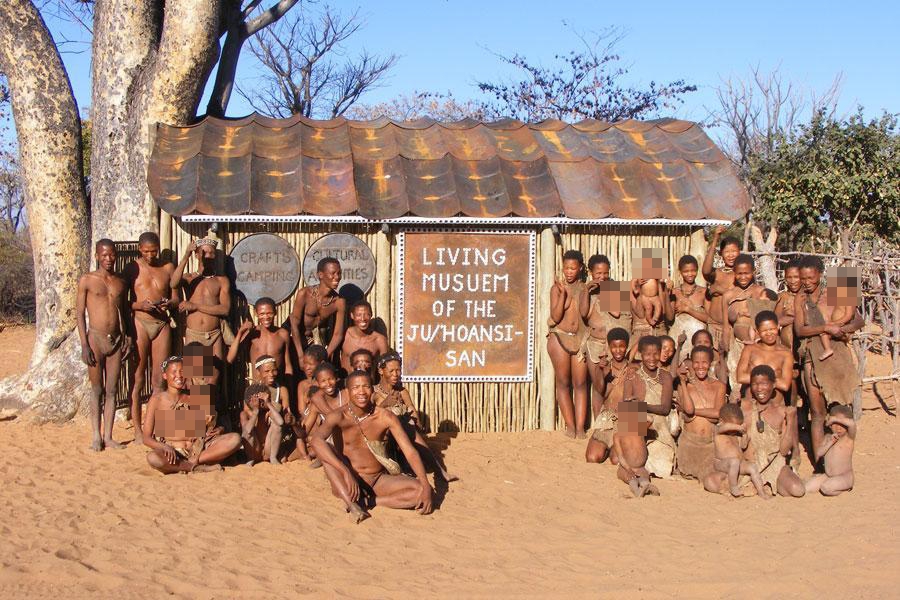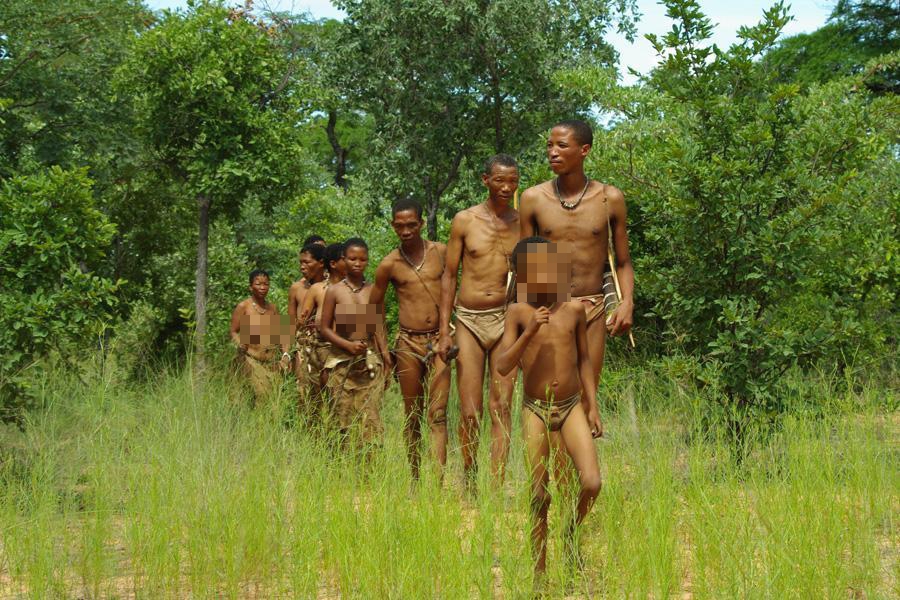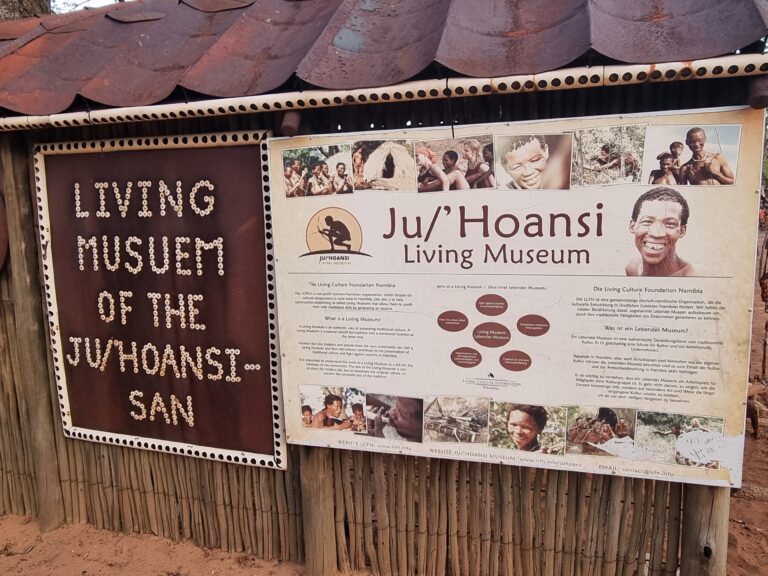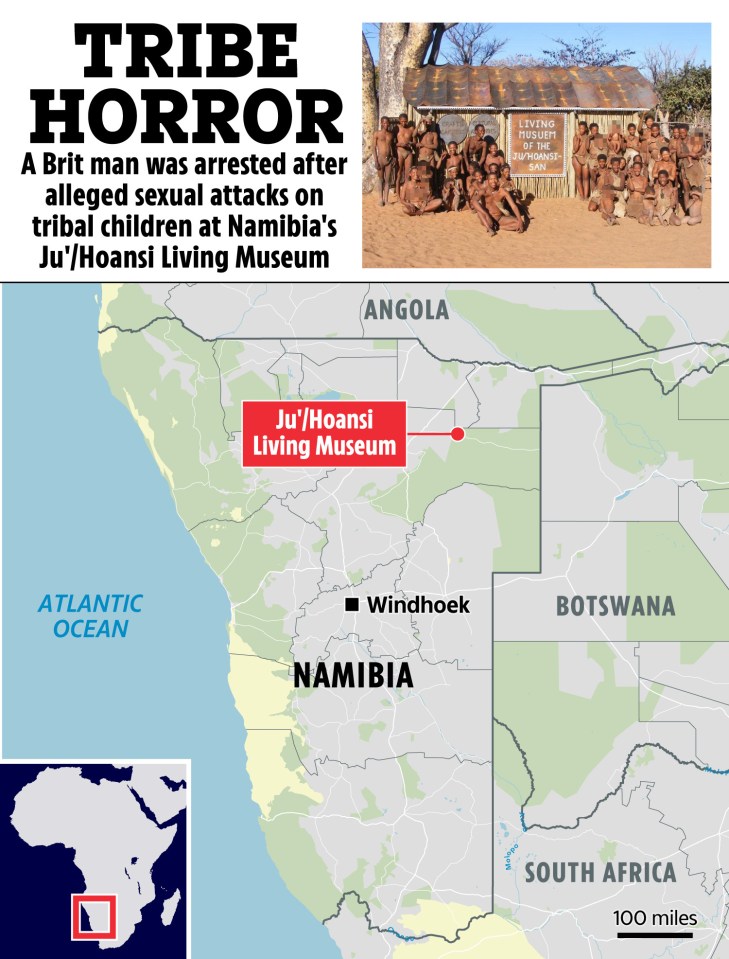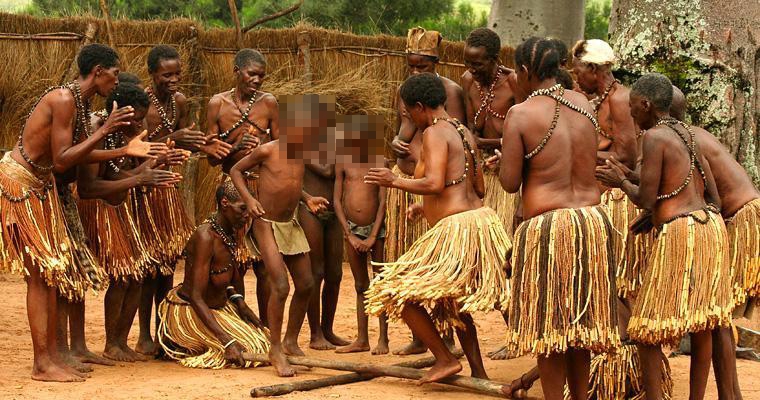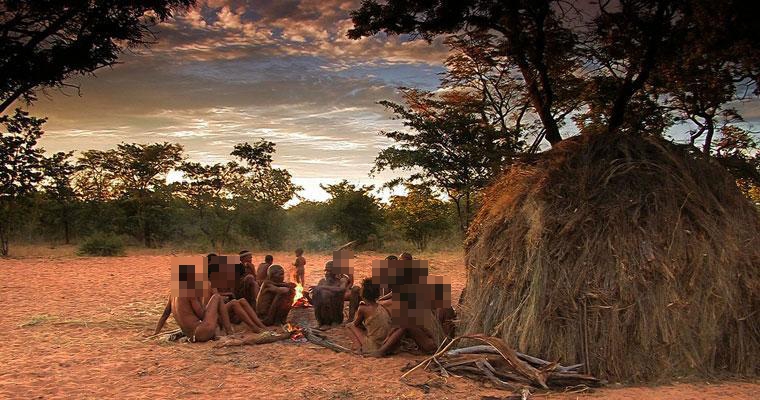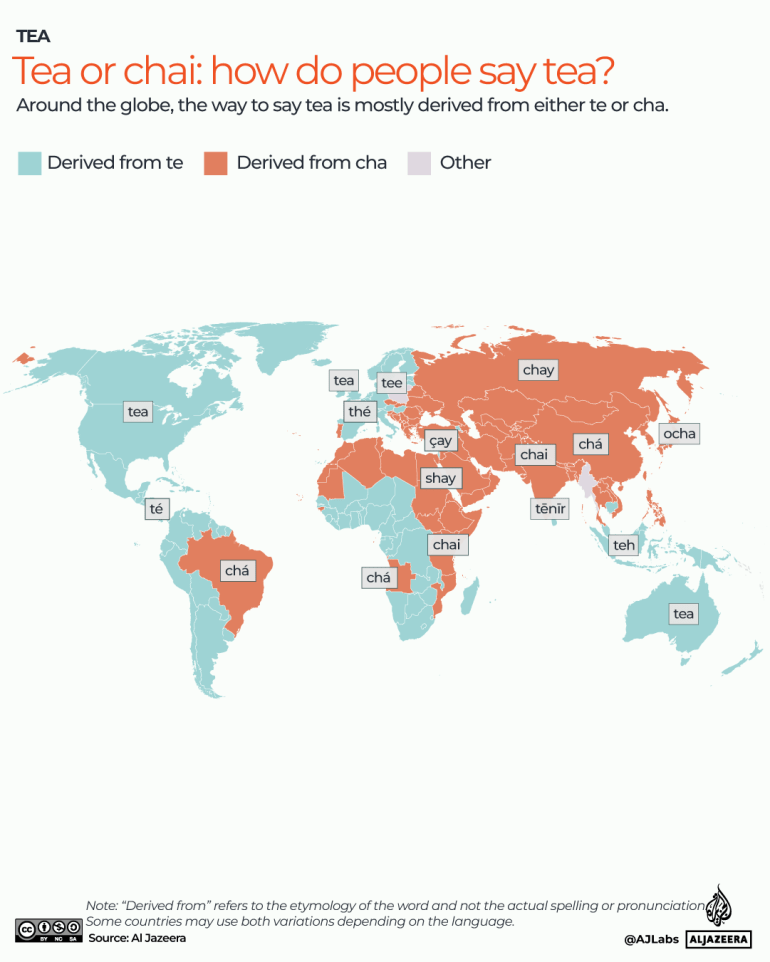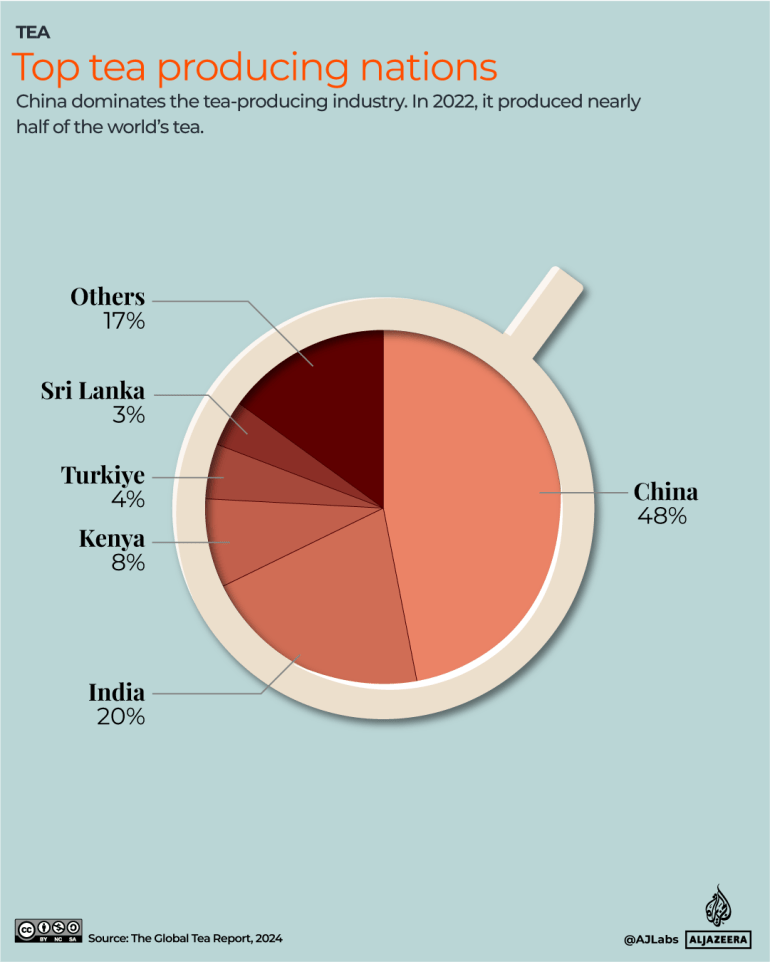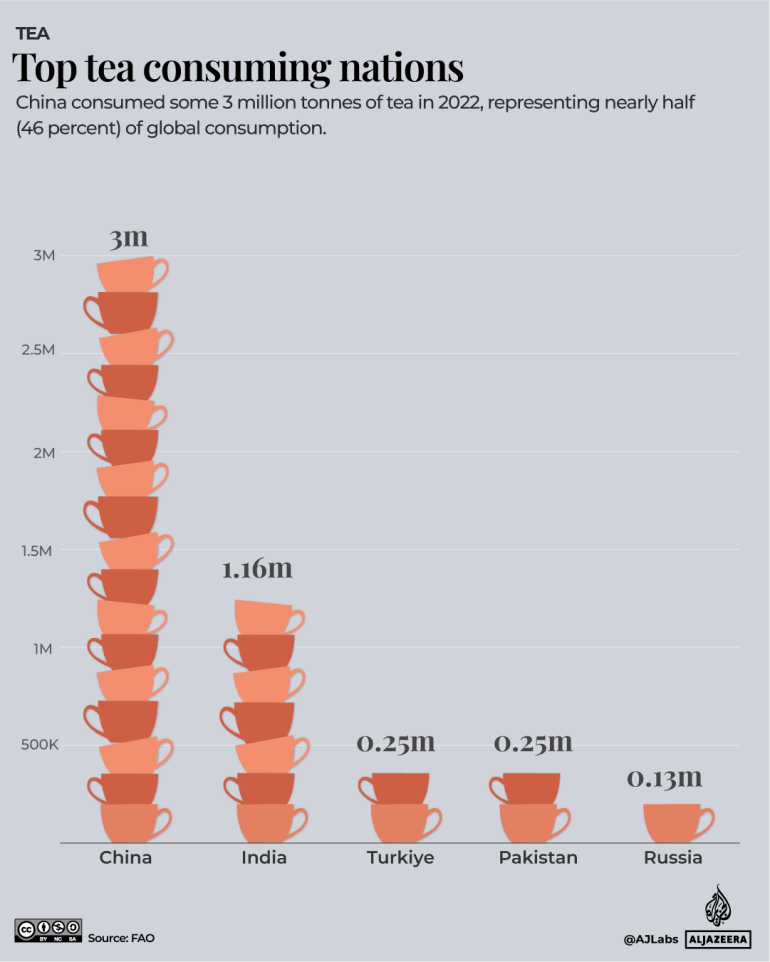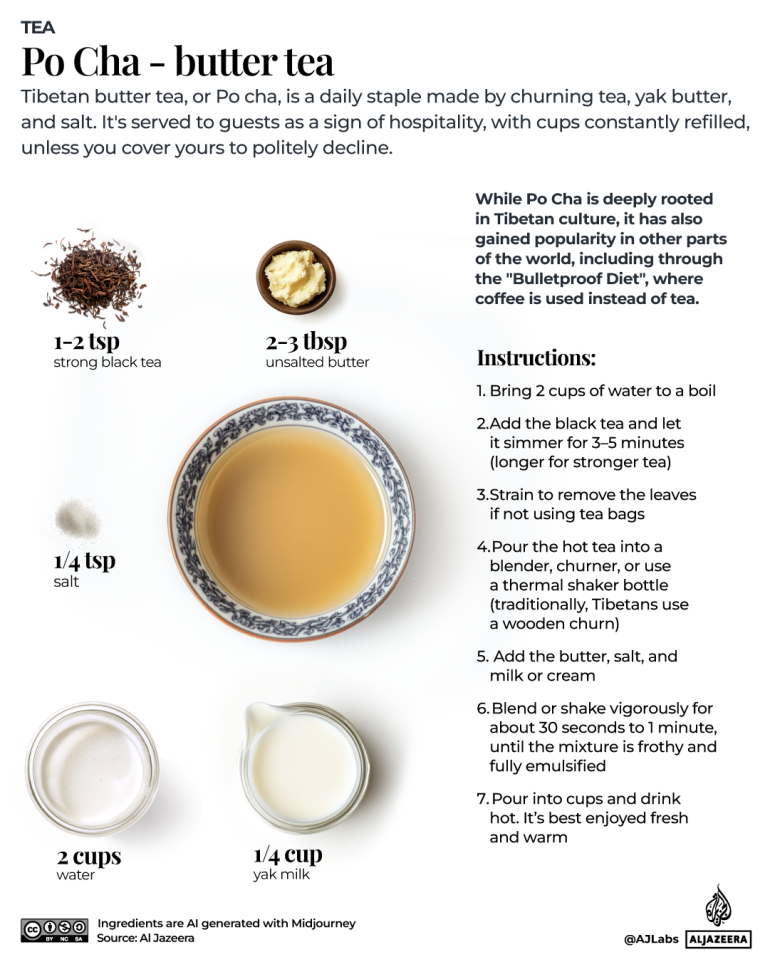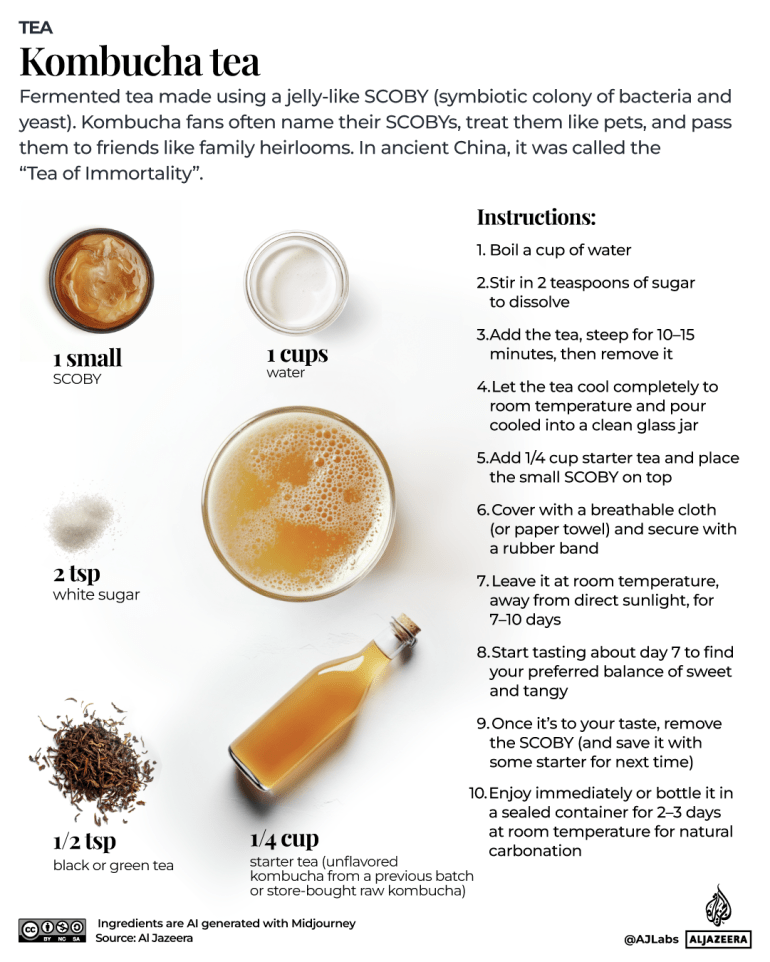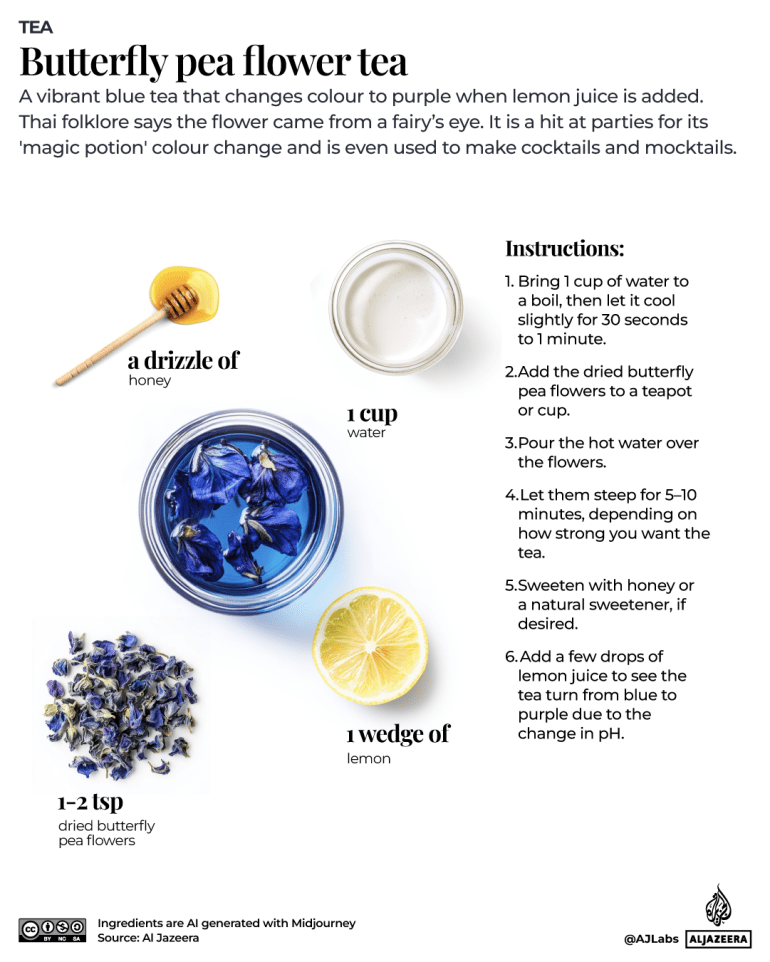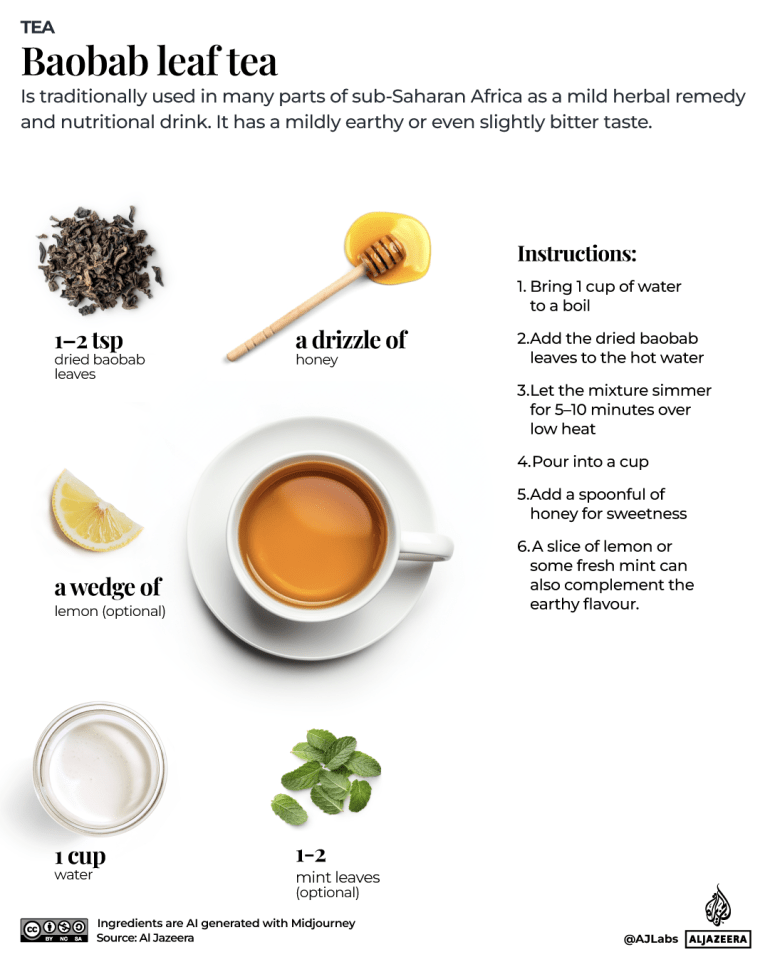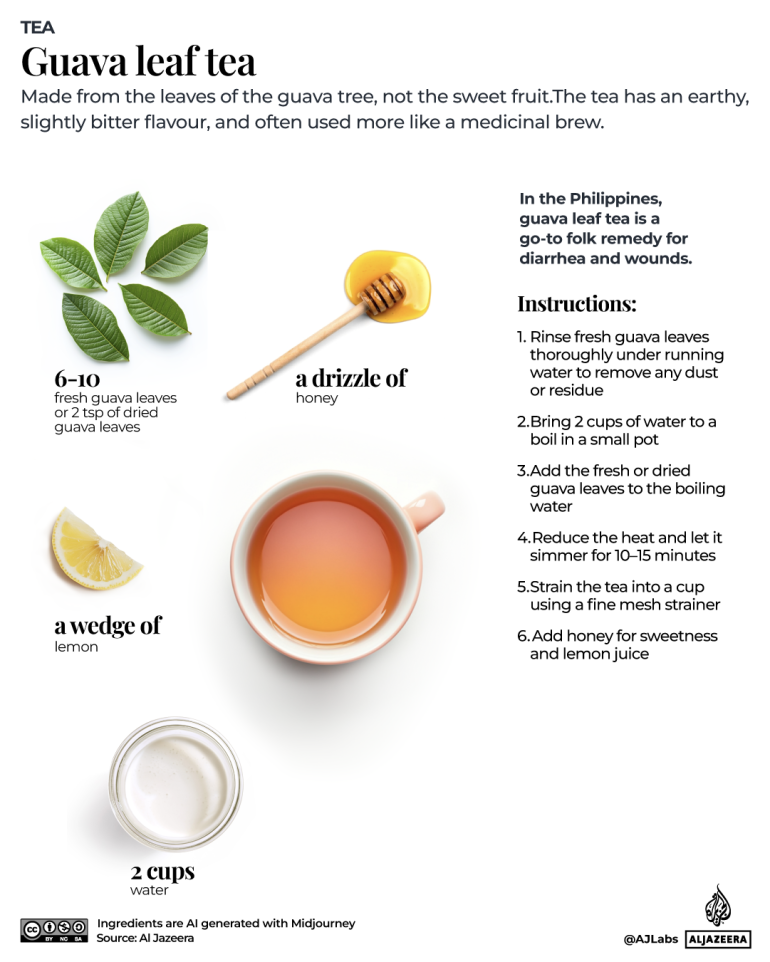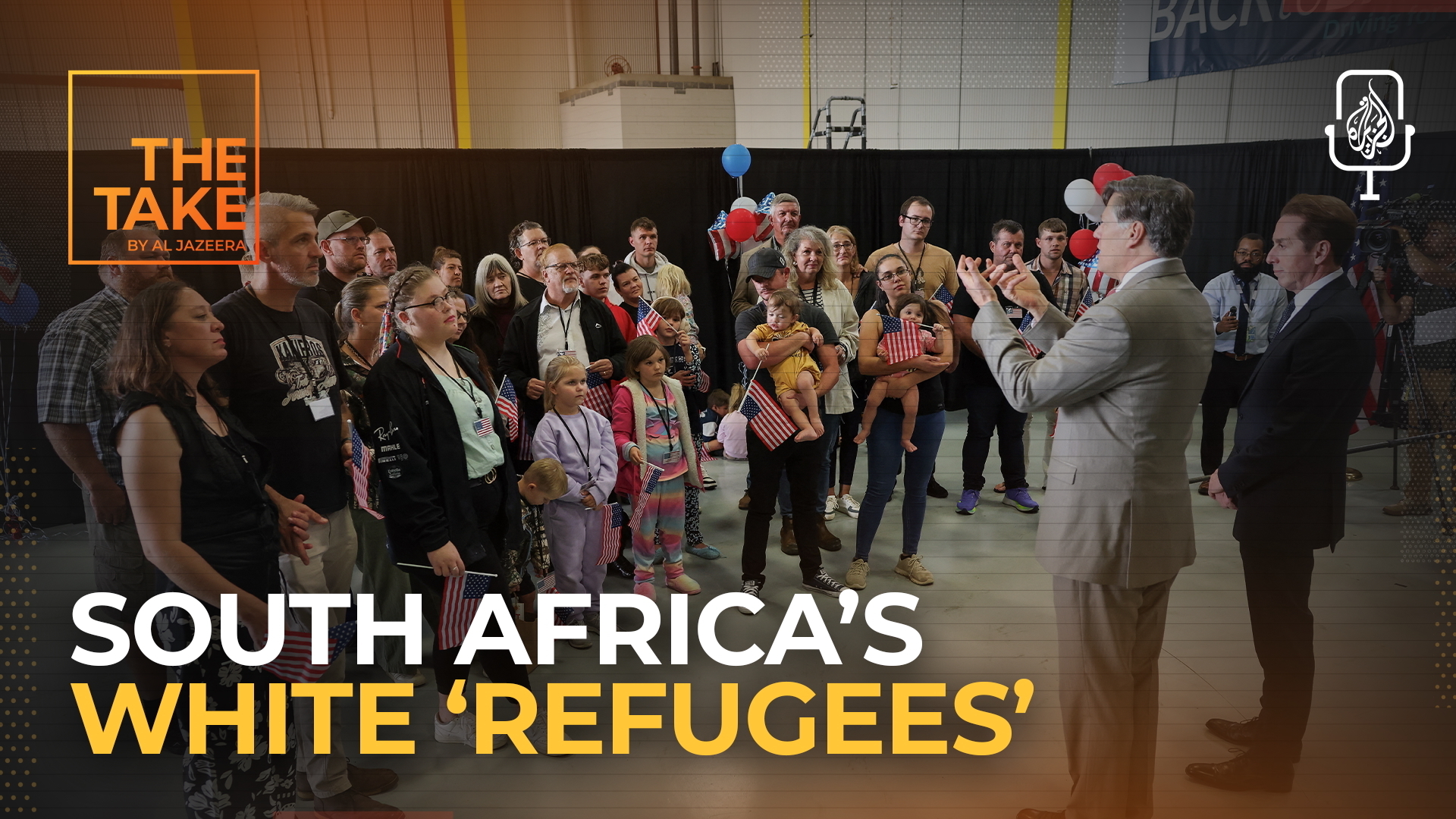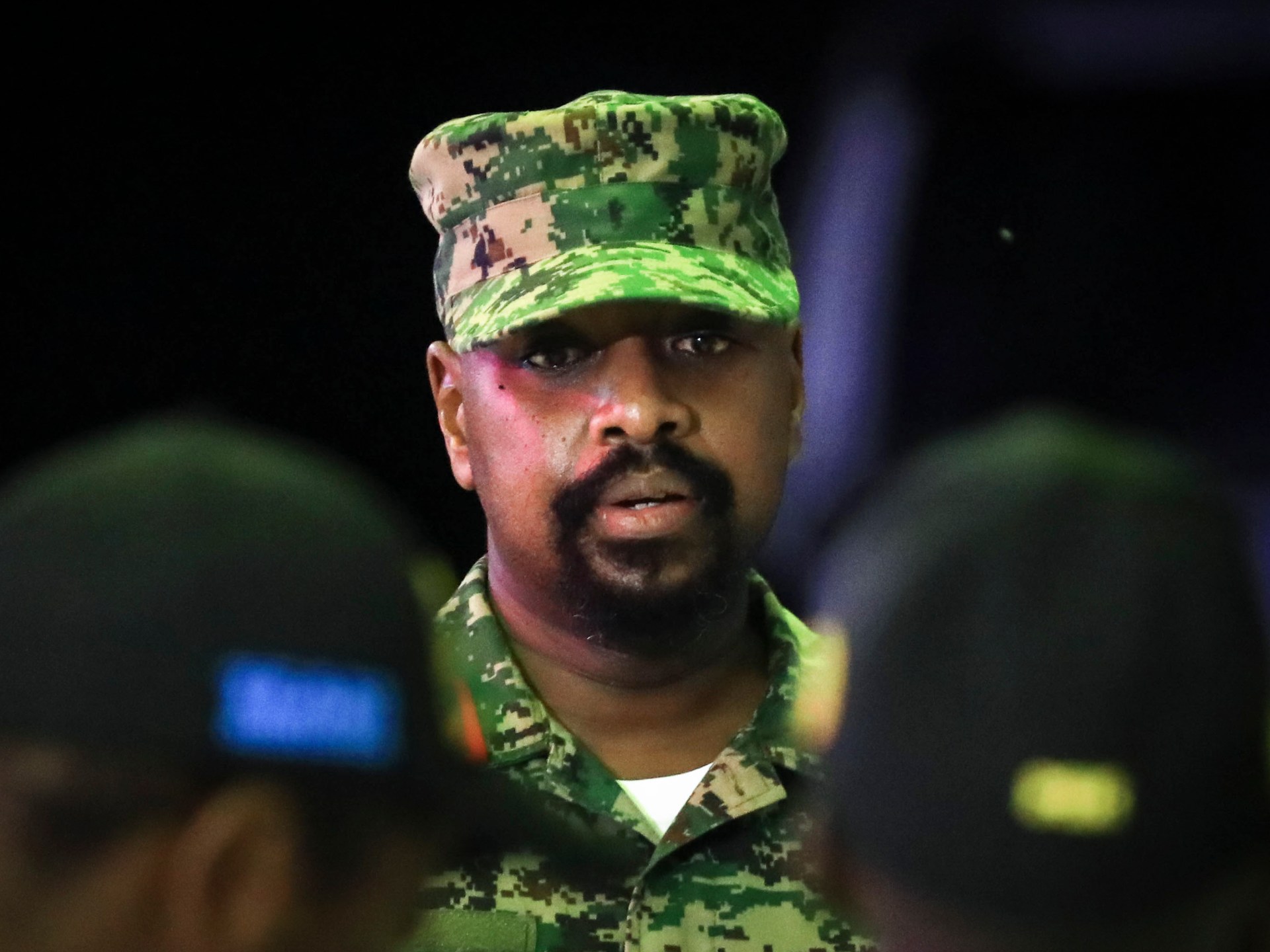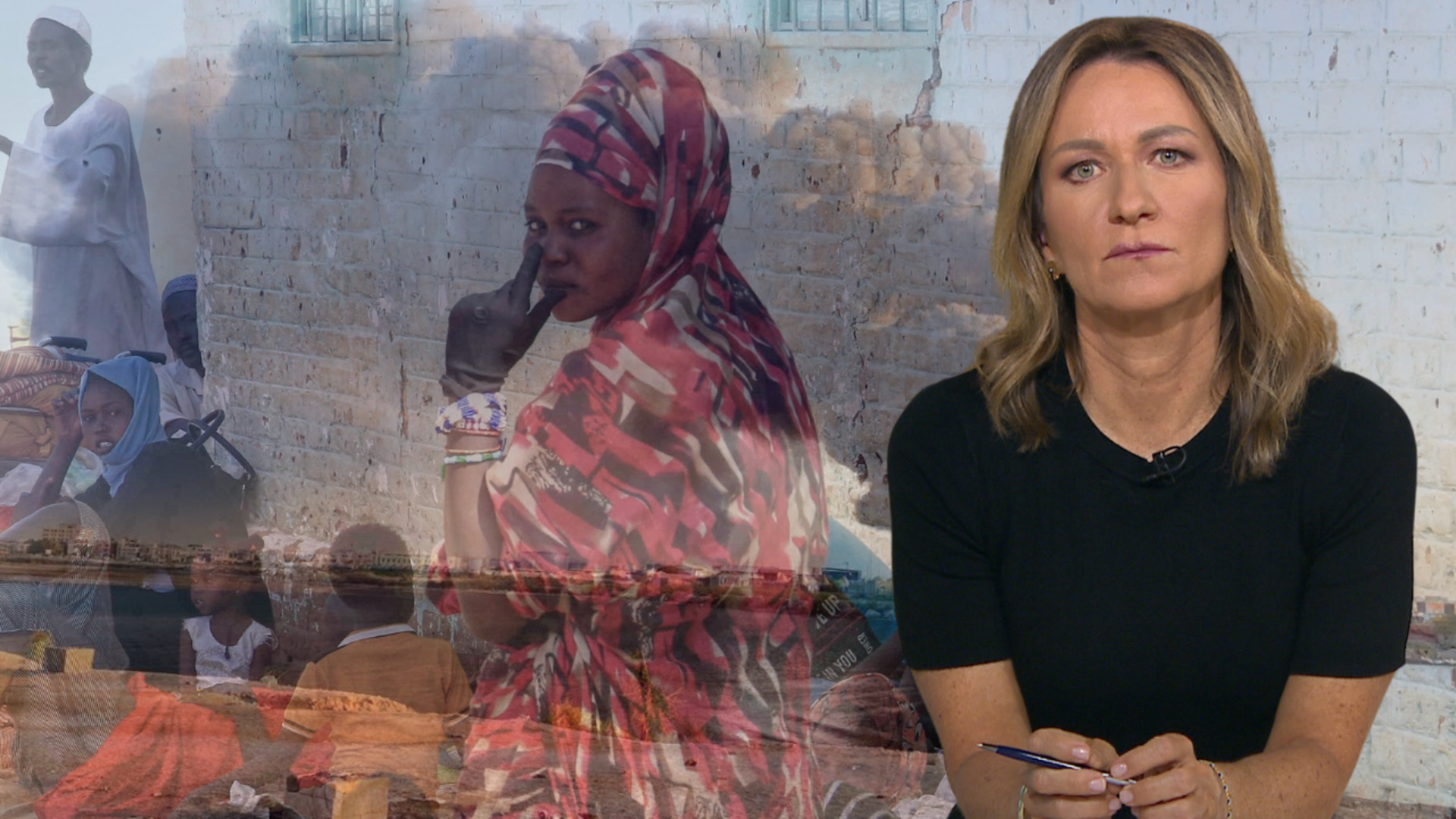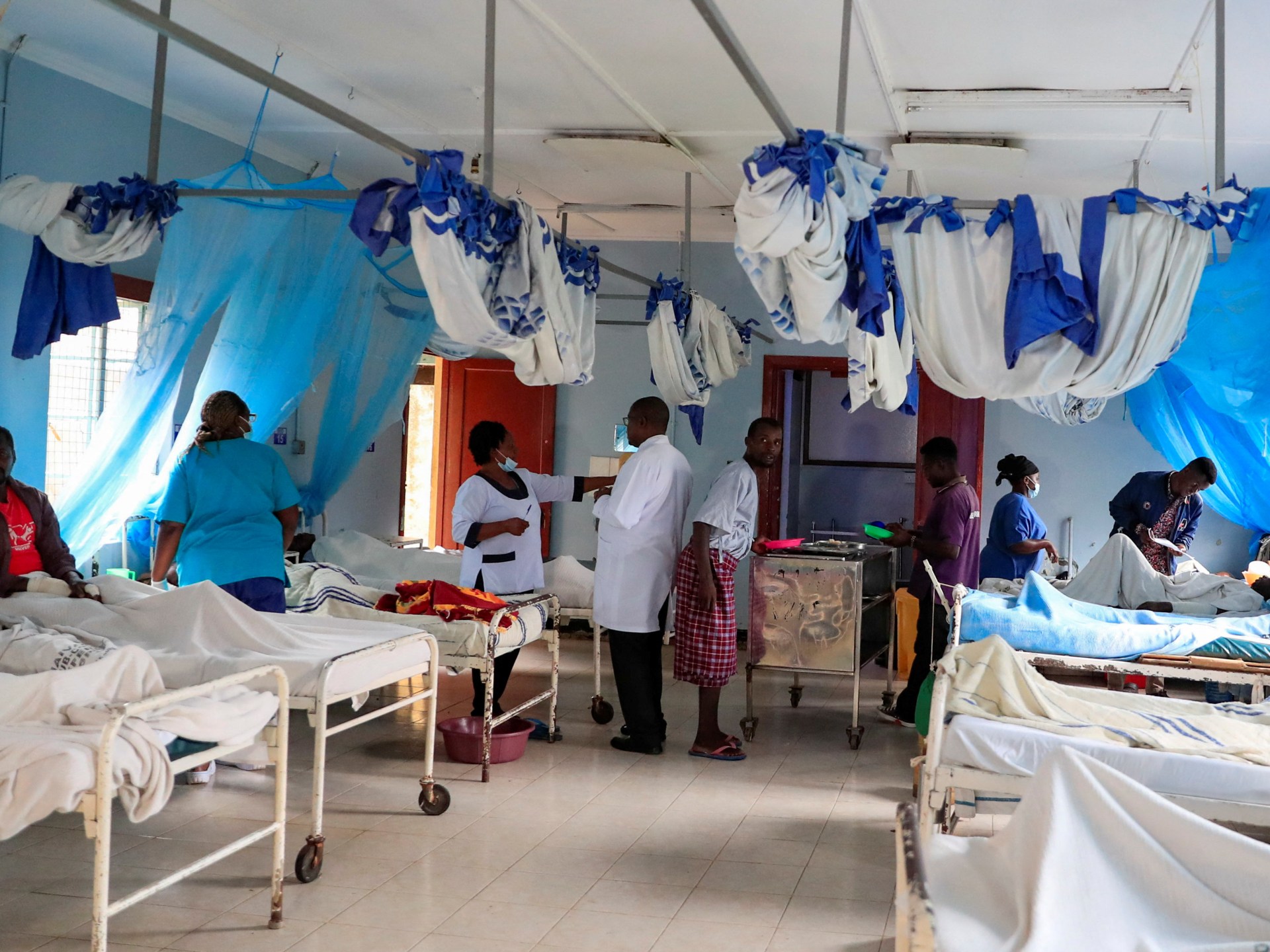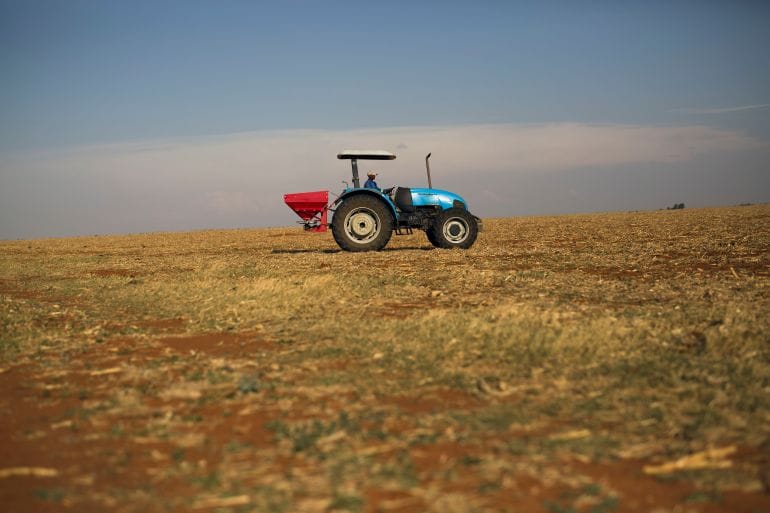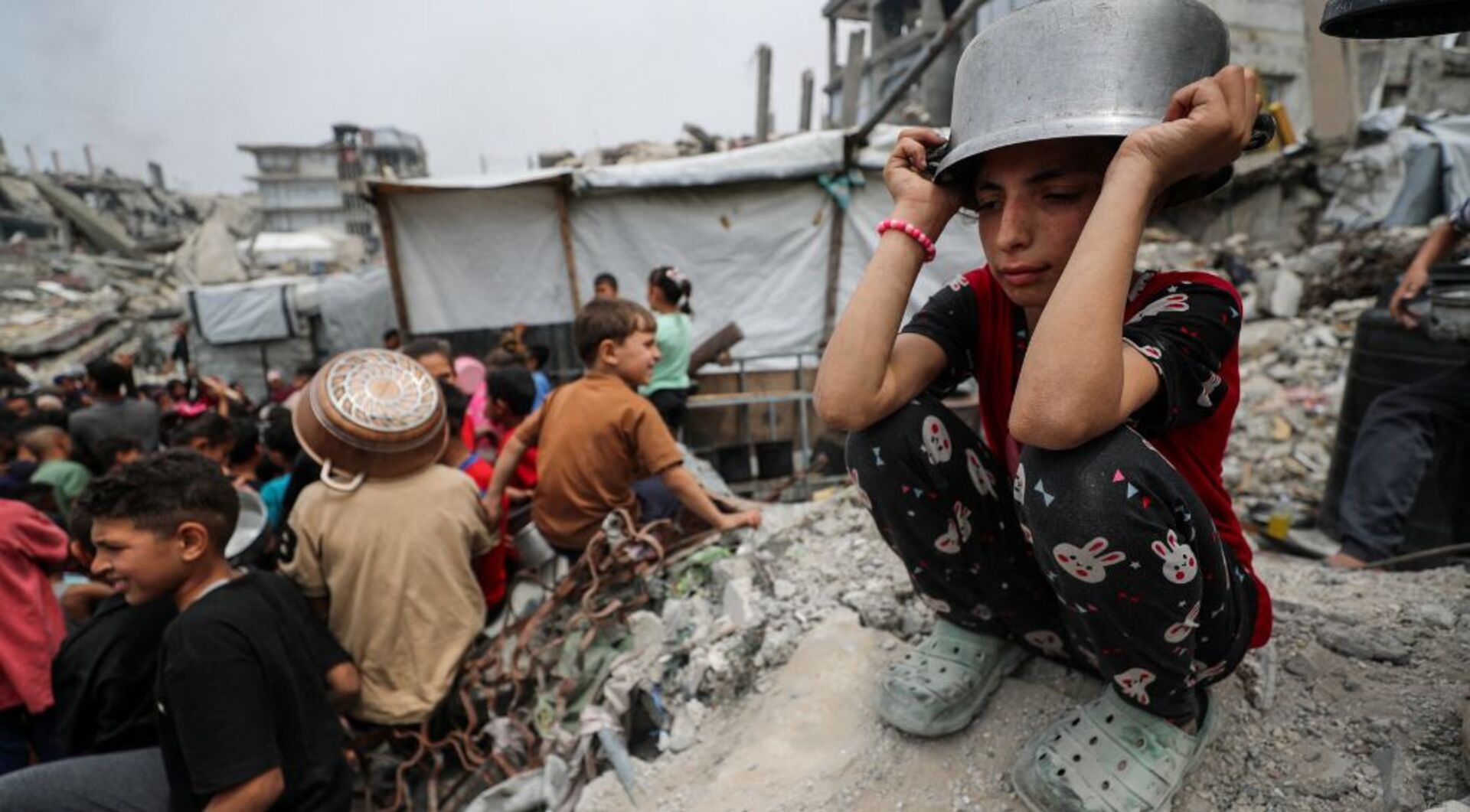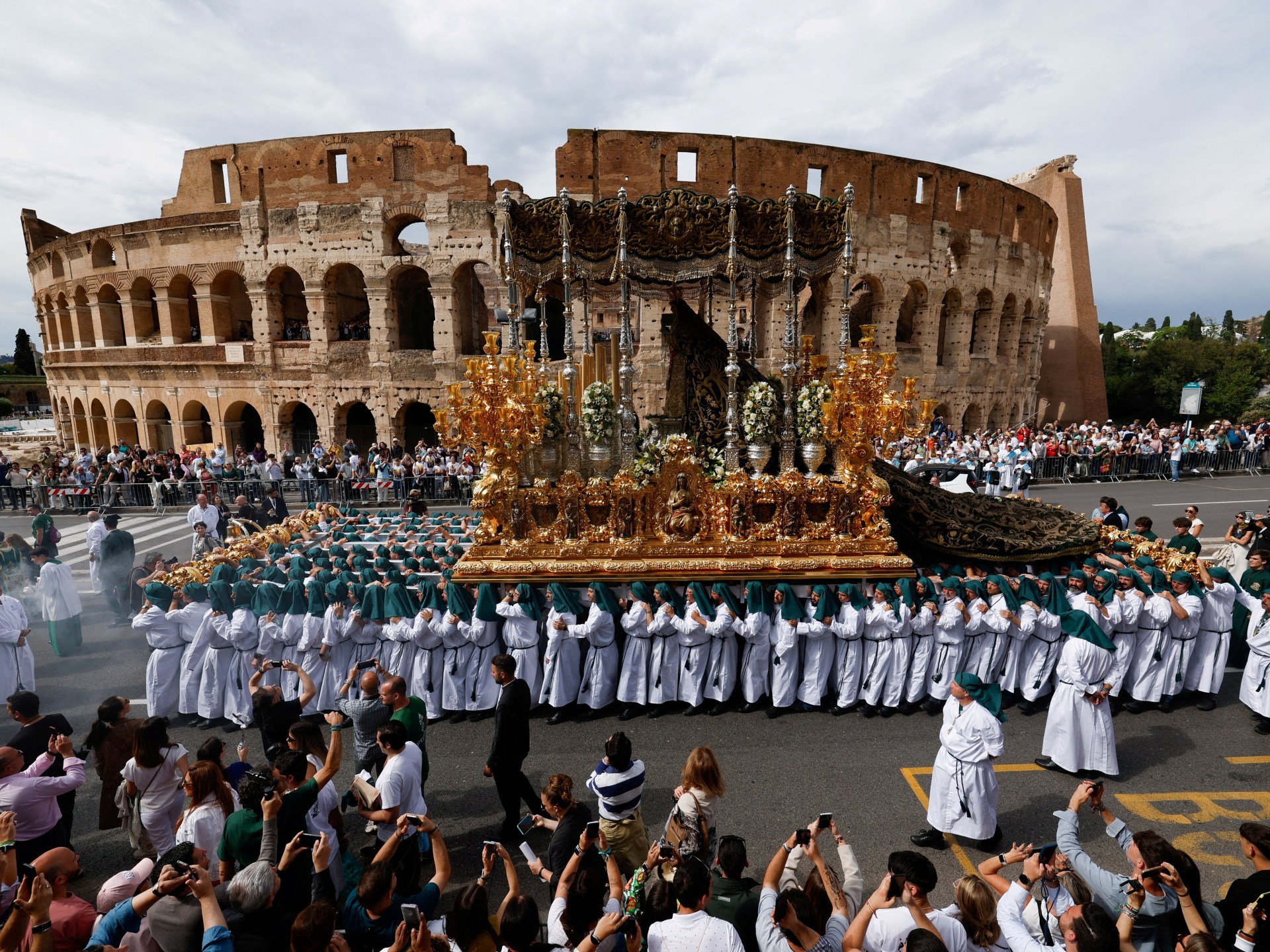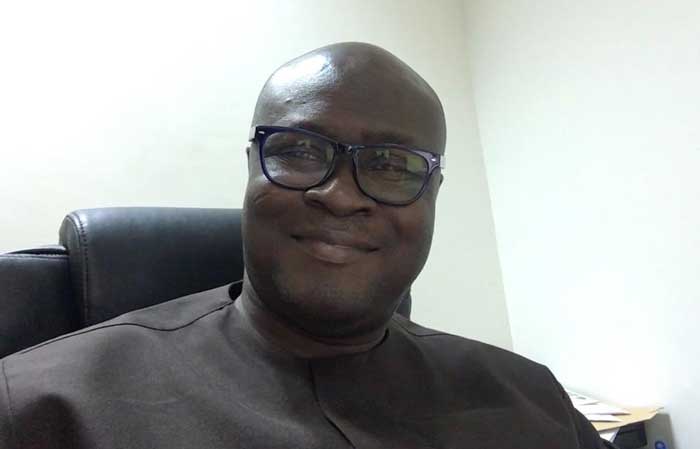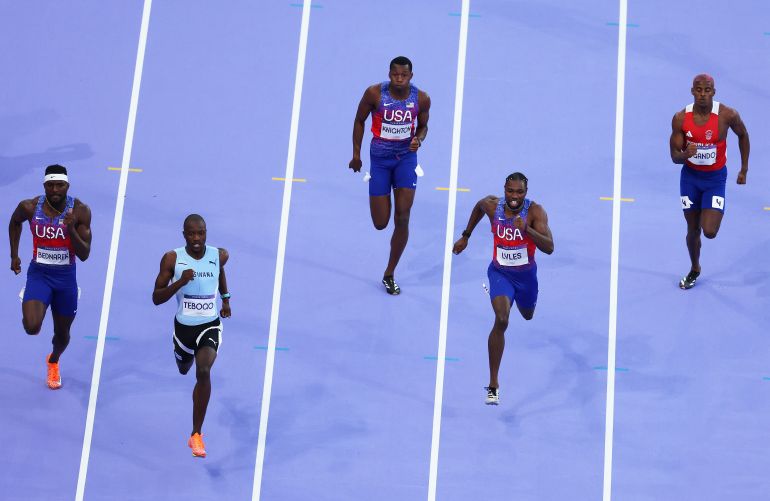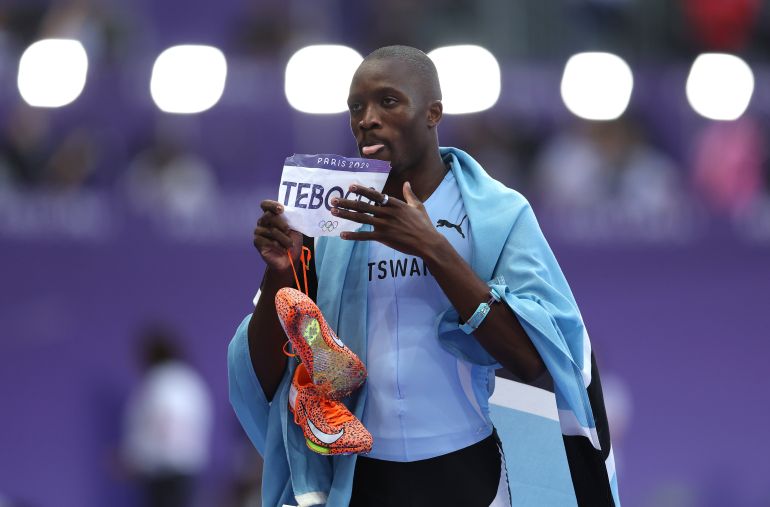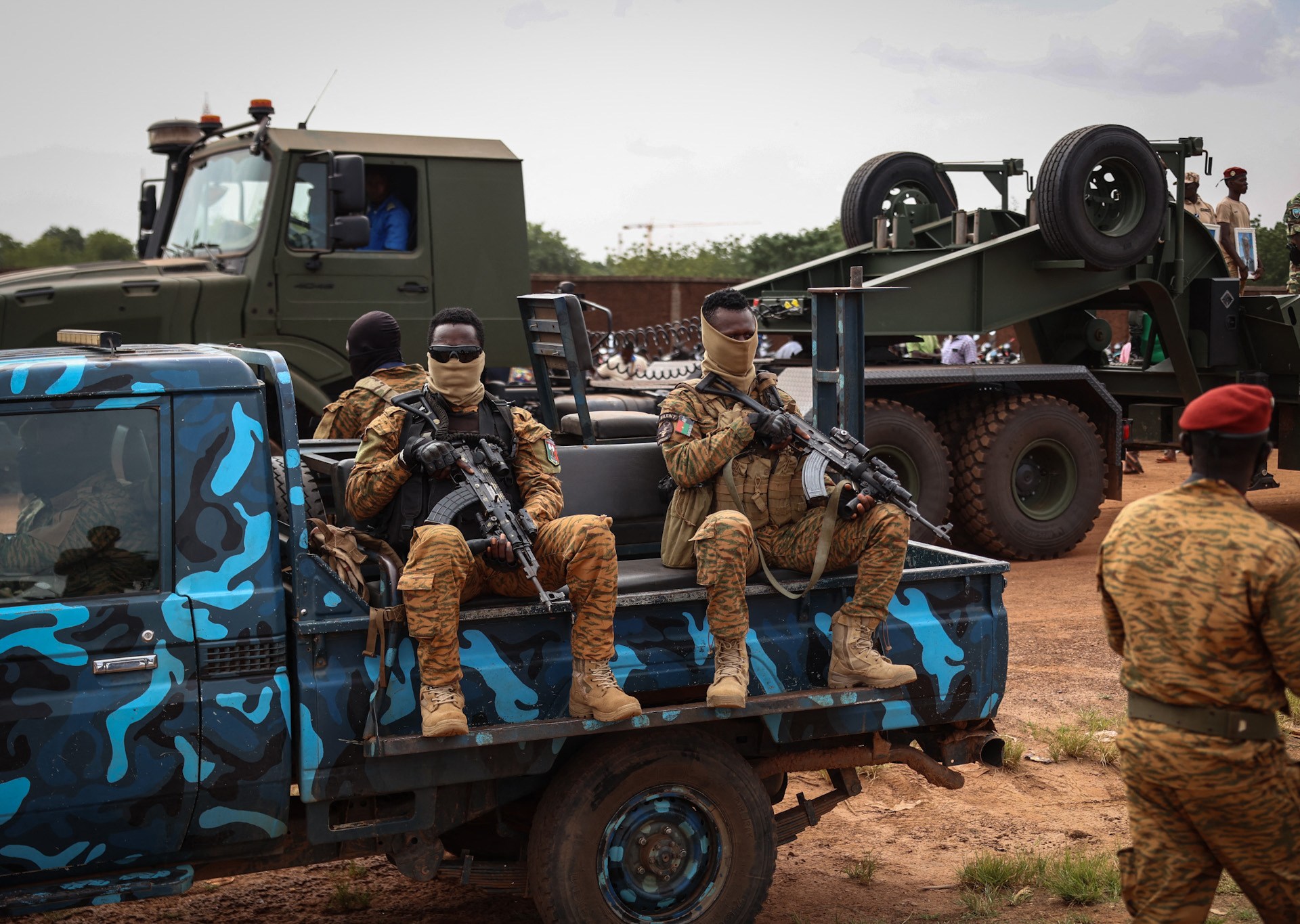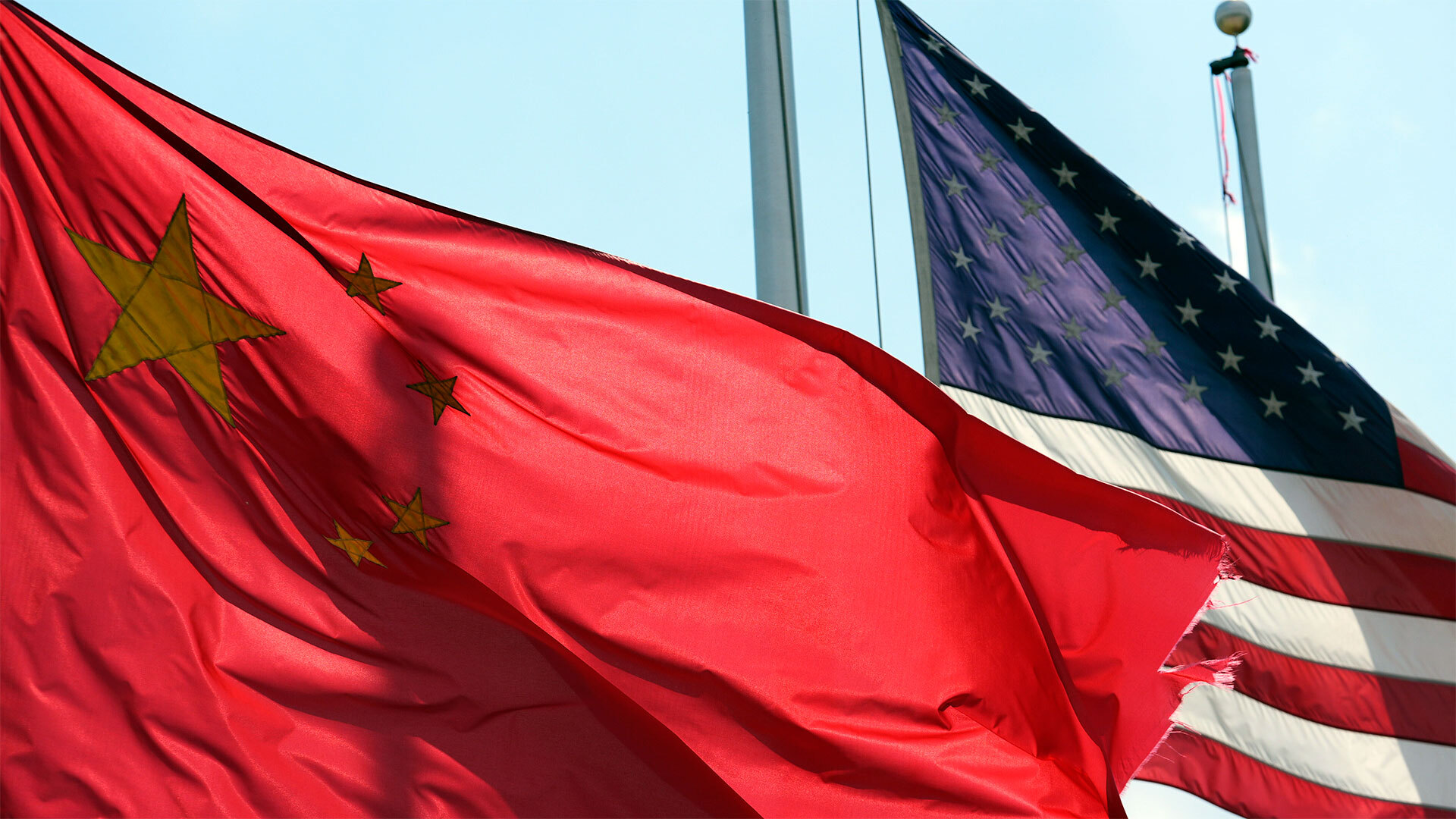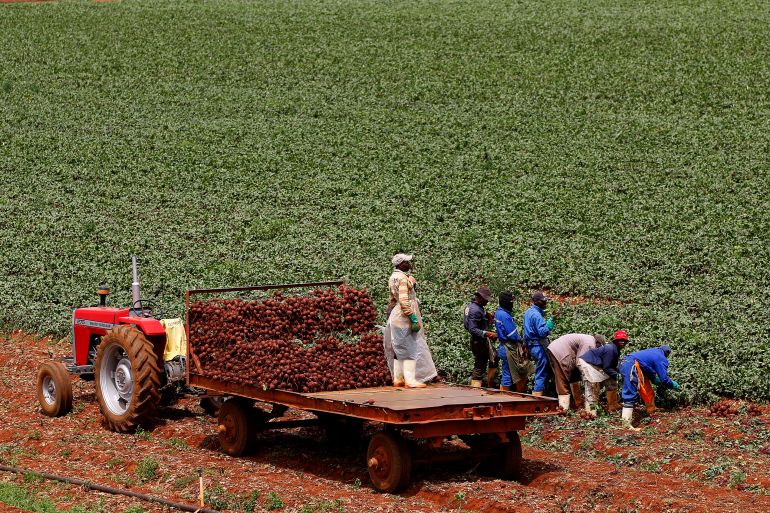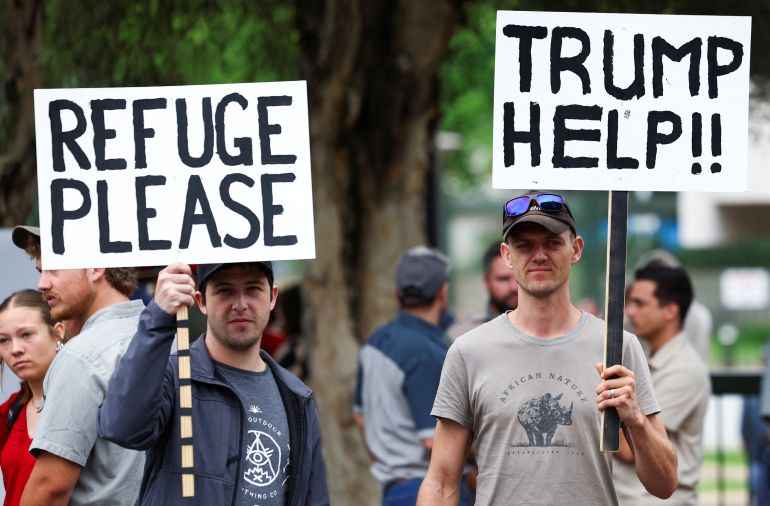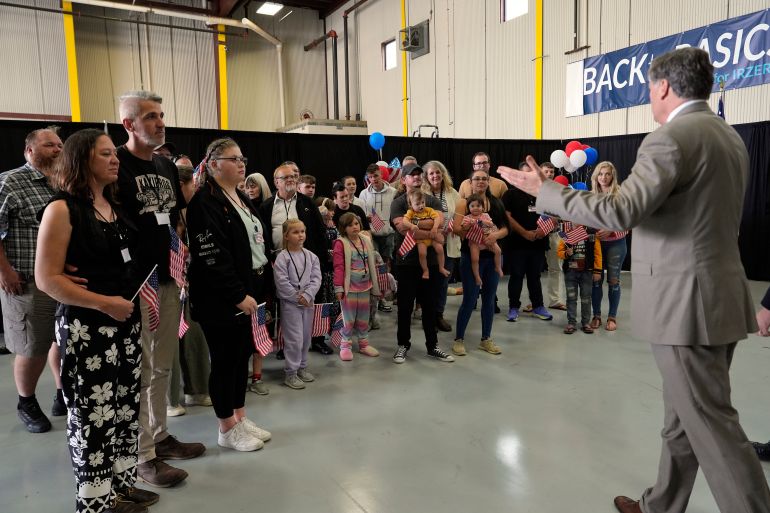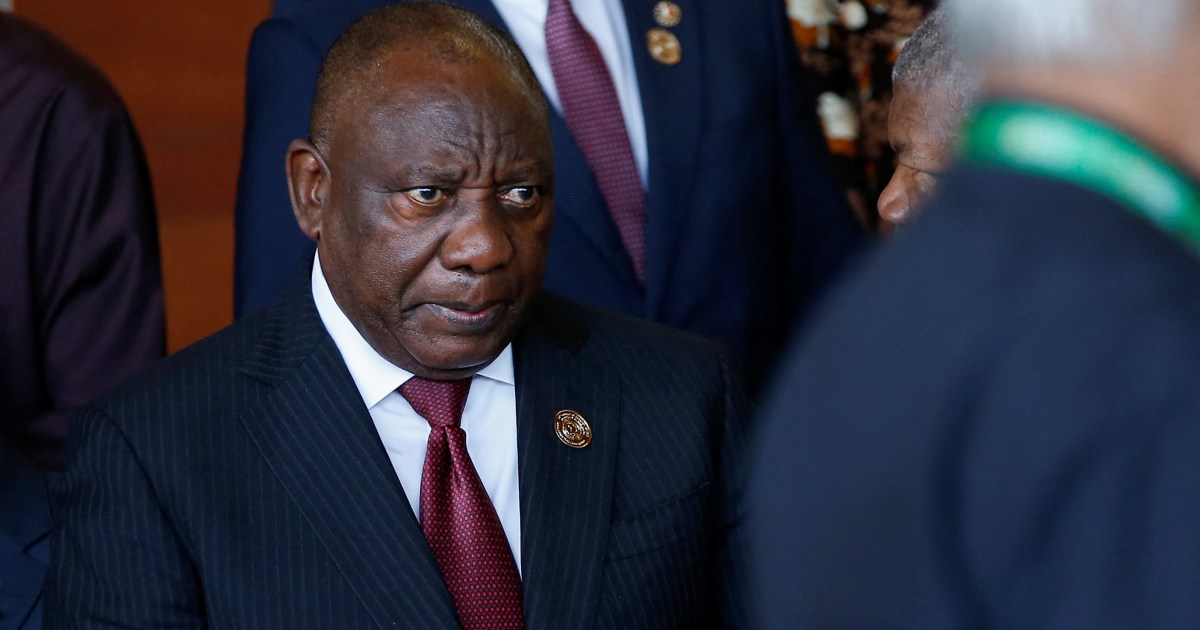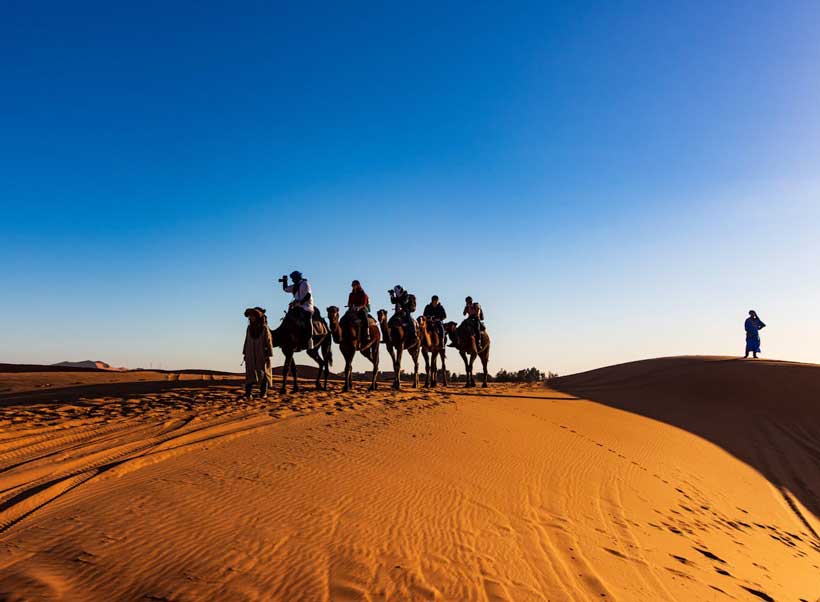Can Ramaphosa charm offensive help fix South Africa’s ties with Trump’s US? | Politics News
Johannesburg, South Africa – When the millionaire mining magnate-turned-president of South Africa landed in Washington to meet the billionaire real estate tycoon-turned-president of the United States, it was with a deal in mind.
Tensions have been escalating between the US and its African trade ally since Donald Trump took office this year, cut off aid to South Africa, repeated false accusations that a “white genocide” is taking place there and began welcoming Afrikaners as refugees.
At the meeting between Trump and Cyril Ramaphosa in the White House on Wednesday, the South African president began by focusing heavily on trade and investments, highlighting the two countries’ years of cooperation, in keeping with statements made by South Africa’s presidency that Ramaphosa would present a trade deal to the US.
But Trump responded with a well-prepared redirect that South African media and analysts described as an “ambush” and a move that “blindsided” Ramaphosa.
Ready with printouts of news articles about alleged white victims of killings in South Africa and a video of firebrand opposition politician Julius Malema singing Kill the Boer, Trump insisted that white farmers were being targeted and murdered – an assertion Ramaphosa politely yet firmly denied, saying criminality was a problem for all South Africans regardless of race.
The team Ramaphosa assembled to join him on his working visit – which included four white South Africans: two golf legends, the wealthiest man in the country and the agriculture minister – all reaffirmed Ramaphosa’s facts that while violence was widespread, white people were not specifically being targeted.
“We have a real safety problem in South Africa, and I don’t think anyone wants to candy-coat that,” said John Steenhuisen, the agriculture minister and a member of the Democratic Alliance party, which is part of South Africa’s governing coalition.
“Certainly, the majority of South Africa’s commercial and smallholder farmers really do want to stay in South Africa and make it work,” the minister, who is himself an Afrikaner, said. Trump claimed that “thousands” of white farmers were fleeing South Africa.
Steenhuisen added that the people in the video Trump showed were leaders of opposition minority parties and his party had joined forces with Ramaphosa “precisely to keep those people out of power”.
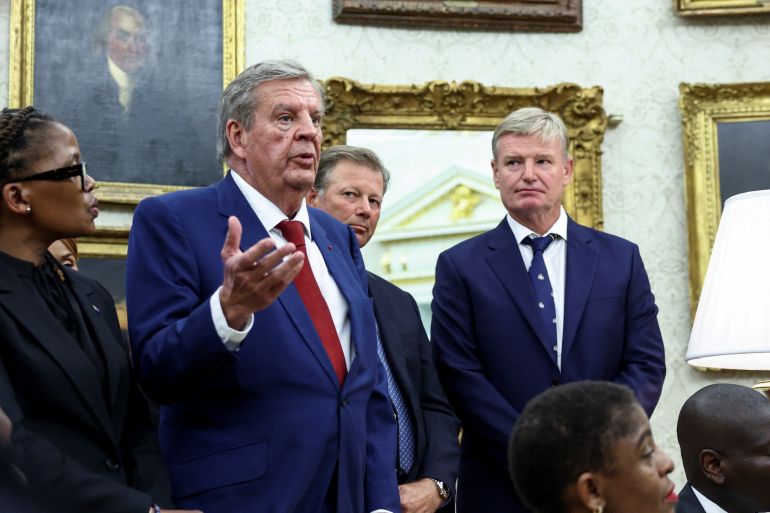
‘The lion’s den’
The meeting began cordially where Trump complimented South African golfers, including well-known Ernie Els and Retief Goosen, who were part of the delegation. They both implored Trump for enhanced trade to uplift South Africa’s economy.
Also in the delegation was South Africa’s richest man, Johann Rupert, a luxury-goods mogul and an Afrikaner. He countered claims of racial persecution against the white minority, saying that while criminality was rife, Black people were more often the victims.
“We have too many deaths, but it’s across the board. It is not only white farmers,” Rupert said to Trump.
Ramaphosa kept his cool, local media and observers said, noting that the South African president chose to remain calm, patient and light-hearted even in light of Trump’s attack.
He steered talks back to trade, saying South Africa needed economic investment from its allies, and mostly sat expressionless while the video was played, occasionally stretching his neck to look at it.
Ramaphosa went into “the lion’s den” and was met with an ambush but he remained calm, South African political analyst Sanusha Naidu said.
“Ramaphosa and the delegation did not allow themselves to be baited into an emotional response. That’s critical. They made Trump feel like he had the upper hand in the meeting,” she told Al Jazeera, adding that given the narrative from Trump before Ramaphosa’s arrival, it “could have gone worse”.
When asked by a reporter whether he wanted the impasse between the US and South Africa resolved, Trump said he was open to it.
“I hope it has to be resolved. It should be resolved,” he said, adding that if it were not resolved, it would be “the end of the country”.
‘Reset’ relations
Before the two leaders met on Wednesday, Ramaphosa’s office said the aim was to “reset” relations, especially as the US is South Africa’s second largest trading partner after China.
“Whether we like it or not, we are joined at the hip, and we need to be talking to them,” the South African president said before his trip.
Christopher Isike, a political scientist at the University of Pretoria, told Al Jazeera that direct engagement between the leaders was important, given the tense relations between their countries.
“This is an opportunity for South Africa to correct misinformation peddled by President Trump and try to reset trade relations between the two countries,” he said.
Isike noted that both presidents’ backgrounds as businesspeople could provide common ground for discussing mutually advantageous deals.
“Rich friends of Ramaphosa are also rich friends of Trump, and that may have helped facilitate the meeting,” Isike added.
Common ground and level heads would be useful as the leaders continued private talks away from the media on Wednesday, observers said.
Before the visit, Ramaphosa maintained that while Trump was a dealmaker, he too was adept at making deals and even joked about the possibility of playing a round of golf with his US counterpart.
Washington, however, has criticised Pretoria for a host of matters since Trump took office. This continued in the meeting on Wednesday.
Trump focused on the white farmers, particularly Afrikaners – the descendants of mainly Dutch settlers who instituted apartheid. He alleged they are being killed because of their race despite evidence showing that attacks and killings are common across all groups in the country.
Trump also mentioned South Africa’s land reform law that allows land in the public interest to be taken without compensation in exceptional circumstances in an effort to redress apartheid injustices. Pretoria said no white land has been taken, but the US said the law unfairly targets minority white South Africans who are the majority landholders.
Despite Pretoria consistently seeking to rectify false assertions, the Trump administration has pushed ahead with a plan to take in Afrikaners as refugees. The first group arrived last week. He has also cut aid, including vital support for life-saving HIV programmes, to South Africa.
Additionally, there are worries that Trump may not attend the Group of 20 summit being held in South Africa in November and his government may not renew the African Growth and Opportunity Act (AGOA), key US trade legislation that assists economies in sub-Saharan Africa. It expires in September.
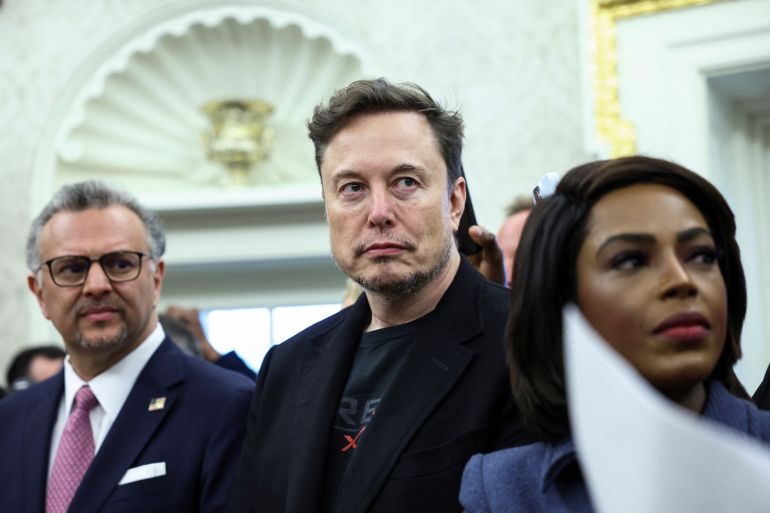
Trade and investments
Before Wednesday’s meetings, Ramaphosa said strengthening trade relations between the two countries was his primary motivation for travelling to Washington, DC.
“We want to come out of the United States with a really good trade deal, investment promotion. We invest in the United States, and they invest in us. We want to strengthen those relations. We want to consolidate relations between the two countries,” he said.
This week, South Africa’s ministers of trade and agriculture, Parks Tau and Steenhuisen, met with US Trade Representative Jamieson Greer to present the first draft of a trade deal.
In 2024, total goods trade between the US and South Africa amounted to $20.5bn. This included $5.8bn in US exports to South Africa and $14.7bn in South African exports to the US.
However, some observers said that at the heart of the potential trade deal is what South Africa could offer billionaire and close Trump ally, Elon Musk, given his ongoing claims about obstacles he allegedly faces in operating Starlink, his satellite internet company, in the country where he was born due to its transformation laws.
These laws seek to redress past injustices that kept Black people destitute and require businesses over a certain size to have a 30 percent equity stake held by members of previously disadvantaged groups.
Speaking at the Doha Economic Forum on Tuesday, Musk reiterated his assertions about laws he claimed were biased against white people despite experts explaining that most of those only seek to promote racial justice.
“All races must be on equal footing in South Africa. That is the right thing to do. Do not replace one set of racist laws with another set of racist laws, which is utterly wrong and improper,” Musk said.
“I am in an absurd situation where I was born in South Africa but cannot get a licence to operate Starlink because I am not Black,” he claimed.
Before Wednesday’s meeting, a White House official told the Reuters news agency Trump is likely to tell Ramaphosa that all US companies in South Africa should be exempt from “racial requirements”.
Opposition figure Malema’s party, the Economic Freedom Fighters (EFF), threatened legal action after news that the government was considering offering regulatory assurances to Musk’s Starlink. The EFF said the move would be unconstitutional and shows Ramaphosa is willing to compromise the country’s sovereignty to “massage the inflated ego of Musk and Trump”.
Isike said that while trade concessions would be discussed, he doubted the South African government would give up its laws to appease Musk.
“I will be surprised if Starlink gets its way by refusing to follow South African transformation laws, which require 30 percent Black ownership of a foreign company,” he said.
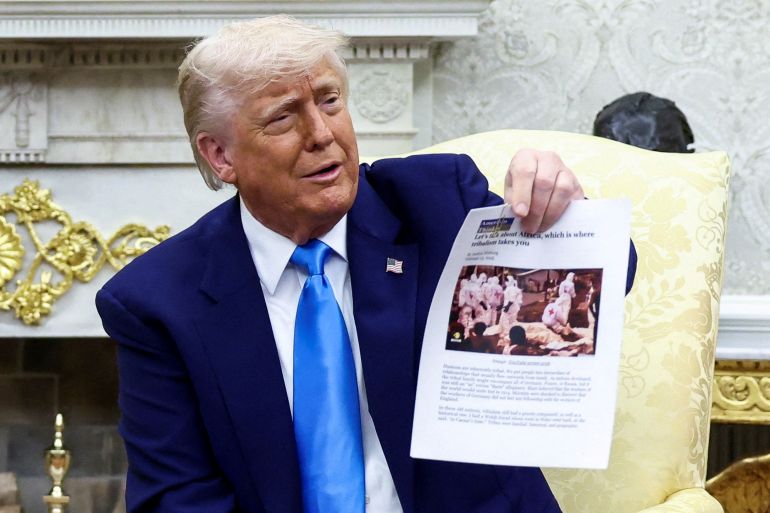
‘Genocide’ claims
Meanwhile, in private talks, Ramaphosa and Trump were also expected to discuss foreign policy issues, including peace prospects between Russia and Ukraine and South Africa’s support for Palestine and its genocide case against Israel at the International Court of Justice (ICJ).
Some political observers said Pretoria is in the US crosshairs partly because of its actions against the key Washington ally.
Patrick Bond, a sociology professor at the University of Johannesburg, predicted before the talks that the US might offer to retract claims of “white genocide” in exchange for South Africa dropping its case at the ICJ.
South Africa is seeking to hold Israel accountable for its assault on Gaza, which has killed more than 53,000 Palestinians since October 2023. The US is Israel’s strongest ally and arms supplier.
“We are very rational when it comes to discussing global and geopolitical matters. We will put South African positions first, and our foreign policy positions will be clarified,” Ramaphosa said before the meeting.
As the Gaza genocide case against Israel continues in The Hague, US allegations of a widely discredited “white genocide” in South Africa continue to follow the country’s leadership.
Before Trump and Ramaphosa retreated to private meetings on Wednesday, a reporter asked the US president if he had decided whether genocide was being committed in South Africa. “I haven’t made up my mind,” he replied.
The unfounded claim of white genocide has “taken on a life of its own”, analyst Paolo von Schirach, president of the Global Policy Institute in Washington, DC, told Al Jazeera.
It will be difficult for Ramaphosa and Trump to rebound after the Oval Office “ambush”, he said.
“We know that Elon Musk certainly fanned this story [about a white genocide], and he’s probably not the only one,” von Schirach said. “It’s going to be hard for Trump to say, ‘Oh, so sorry. I was misinformed.’”

